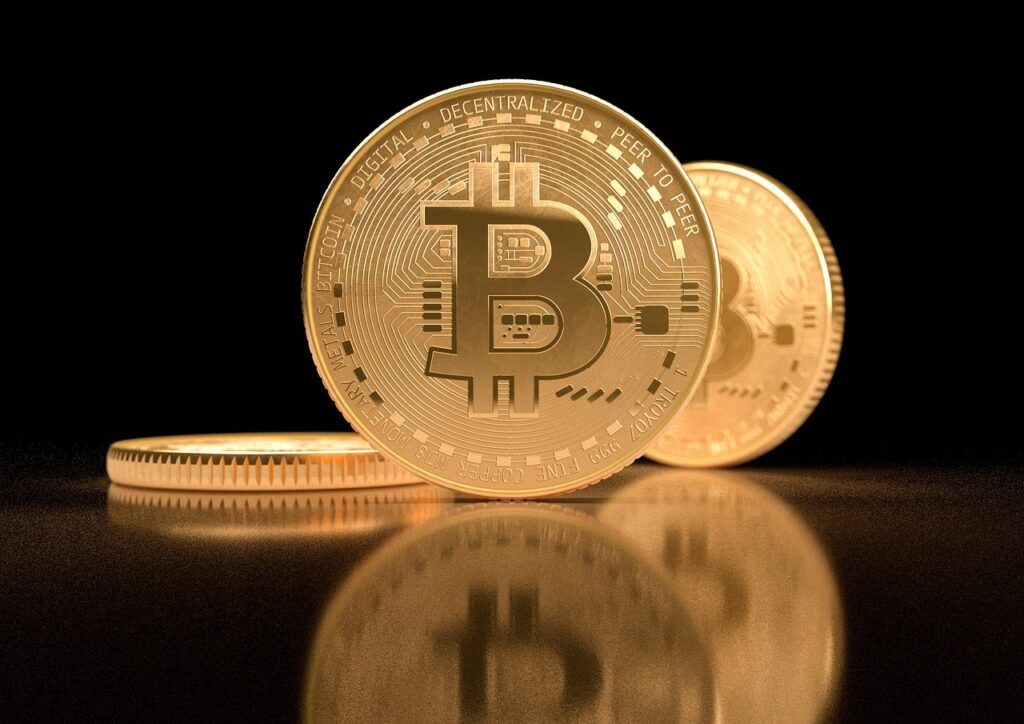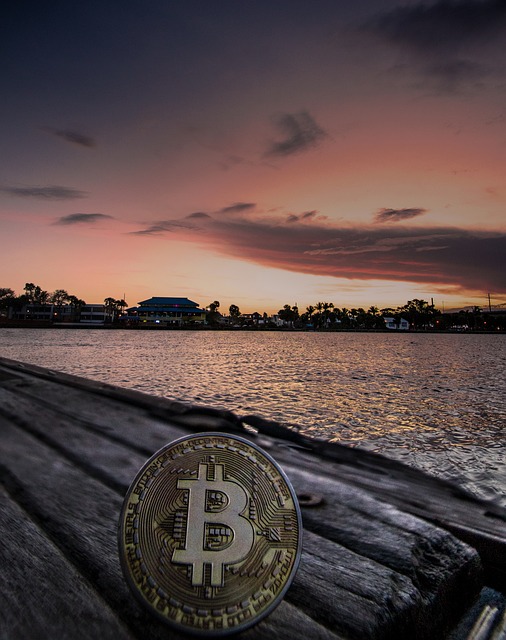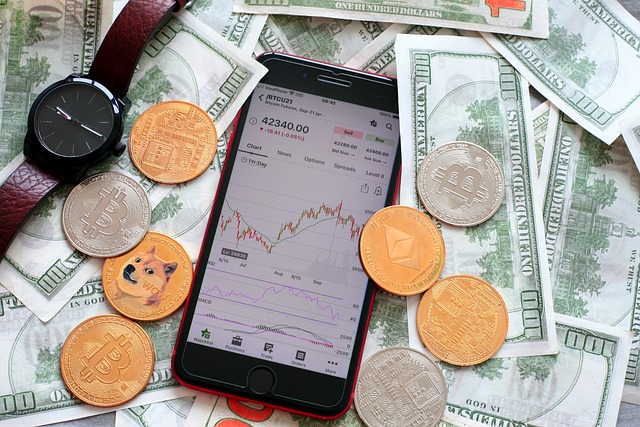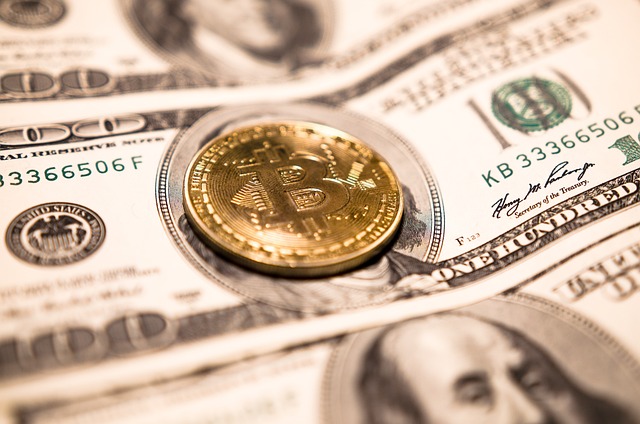Risk Management in DeFi: Safeguarding Your Investments
Risk Management in DeFi: Safeguarding Your Investments

What is DeFi?
DeFi, short for Decentralized Finance, is an emerging concept that is revolutionizing the traditional financial system. Unlike traditional banks and financial institutions that operate as intermediaries, DeFi leverages blockchain technology to create open, permissionless, and transparent financial applications. In simple terms, DeFi allows individuals to access a wide range of financial services and products without relying on intermediaries or centralized authorities.
One of the key features of DeFi is its ability to facilitate peer-to-peer transactions, eliminating the need for intermediaries. This creates a more efficient and cost-effective system, as users can interact directly with each other, cutting out middlemen and associated fees. Additionally, DeFi applications operate on decentralized networks, meaning that no single entity has control or ownership over the platform. This decentralized nature ensures that the financial system remains resistant to censorship and manipulation, providing users with greater financial freedom and control over their assets.
Understanding the Risks in DeFi
Understanding the risks involved in decentralized finance (DeFi) is essential for anyone looking to participate in this rapidly growing sector. DeFi encompasses a range of financial applications built on blockchain technology, offering users the ability to engage in activities such as lending, borrowing, and trading without the need for traditional intermediaries. While DeFi has great potential for revolutionizing the financial industry, it’s crucial to recognize that it also comes with its fair share of risks.
One of the primary risks in DeFi is the potential for smart contract vulnerabilities. Smart contracts are self-executing agreements written in code that facilitate transactions on the blockchain. If a smart contract is poorly written or contains bugs, it can lead to significant financial losses for all parties involved. It’s important to conduct due diligence and carefully review the security practices and audits carried out on the smart contracts of any DeFi platform you plan to use. By taking the time to understand these risks and choosing platforms with robust security measures, you can minimize the chances of falling victim to smart contract vulnerabilities.
Identifying Potential Vulnerabilities in DeFi Platforms
DeFi (decentralized finance) has gained significant popularity in recent years, promising users a range of financial services without the need for intermediaries. However, it is crucial to identify potential vulnerabilities in DeFi platforms to safeguard your investments. One key vulnerability lies in the smart contracts that underpin these platforms. While smart contracts automate transactions and eliminate the need for trust, they are not foolproof. Bugs or vulnerabilities in smart contracts can expose DeFi platforms to potential security breaches and financial losses.
Another vulnerability to consider is the reliance on external data sources known as oracles. Oracles provide DeFi platforms with information from the real world, such as asset prices or exchange rates. However, these oracles can be manipulated or provide inaccurate information, leading to improper execution of transactions or financial manipulation. Therefore, it is important to assess the reliability and security measures implemented by DeFi platforms when it comes to the integration of oracles. By recognizing and addressing these potential vulnerabilities, investors can better protect their assets and make more informed decisions when engaging with DeFi platforms.
The Importance of Due Diligence in DeFi Investments
As the decentralized finance (DeFi) space continues to gain traction, it is vital for investors to understand the importance of conducting due diligence before making any financial commitments. Due diligence refers to the process of thoroughly researching and assessing the various aspects of a potential investment opportunity. In the context of DeFi, due diligence involves examining the underlying protocols, smart contracts, and the team behind the project.
One of the key reasons why due diligence is crucial in DeFi investments is to mitigate the risks associated with scams and fraudulent activities. With the anonymous nature of many DeFi projects, it is essential for investors to verify the legitimacy of the platform and the individuals involved. This includes evaluating the team’s credentials, their previous experience, and their overall reputation in the crypto community. By conducting thorough due diligence, investors can make more informed decisions and minimize the likelihood of falling victim to scams or investing in projects with poor fundamentals.
Implementing Diversification Strategies in DeFi
Diversification is a tried and true strategy when it comes to investing, and the same principle holds true in the world of decentralized finance (DeFi). By spreading your investments across various projects and platforms, you can minimize the potential impact of any single failure. This is particularly important in DeFi, where the landscape is constantly evolving and new projects are popping up daily. A diverse portfolio can help mitigate risks and increase the chances of finding successful opportunities in this volatile and fast-paced environment.
When it comes to diversifying your DeFi investments, it’s important to consider factors such as project longevity, market demand, and team credibility. Investing in projects that have a track record of success or are backed by reputable teams can be a good starting point. Additionally, it’s wise to allocate your investments across different types of DeFi protocols, such as lending platforms, decentralized exchanges, and yield farming opportunities. This will give you exposure to various sectors of the DeFi market and can help protect your overall investment in case of any downturns or vulnerabilities in a specific sector. It’s important to remember that diversification does not guarantee profits or eliminate all risks, but it can certainly help manage and minimize them in the ever-changing world of DeFi.
Staying Informed: Monitoring Market Trends and News
When it comes to investing in DeFi, staying informed about market trends and news is crucial. By monitoring these developments, investors can make more informed decisions and stay ahead of the curve.
One way to stay informed is by following authoritative sources in the DeFi space, such as industry publications and reputable news websites. These sources often provide analysis and insights into DeFi projects, market trends, and potential risks. Additionally, joining relevant communities and forums can expose investors to discussions and debates surrounding the latest news in the DeFi ecosystem. Putting in the effort to stay informed can help investors spot opportunities, anticipate market movements, and make more educated investment choices.
Remember, the DeFi market is ever-evolving, and staying up-to-date is essential. By continuously monitoring market trends and news, investors can adapt their strategies and stay on top of potential risks and opportunities.
Setting Realistic Expectations for DeFi Investments
DeFi, or decentralized finance, has emerged as a hot topic in the world of investments. It promises great opportunities, but it is essential to set realistic expectations before diving in. Whether you are a seasoned investor or a newcomer to the DeFi space, it is crucial to understand that high returns often come with high risks.
The first step in setting realistic expectations for DeFi investments is to be aware of the volatility of the market. DeFi platforms can experience significant price fluctuations and sudden market crashes. Therefore, it is essential to approach your investments with caution and avoid being swayed by the hype surrounding certain projects.

• Understand that high returns often come with high risks
• Be aware of the volatility of the DeFi market
• Approach investments with caution and avoid being swayed by hype
• Remember that DeFi is not without its fair share of risks
• Keep expectations grounded and understand potential downsides
Mitigating Risks through Smart Contract Audits
When it comes to mitigating risks in the fast-paced world of decentralized finance (DeFi), one of the key strategies is conducting smart contract audits. Smart contracts are the backbone of DeFi platforms, as they enable the execution of transactions and the automated enforcement of terms and conditions. However, like any piece of code, smart contracts can have vulnerabilities that hackers can exploit. Therefore, thorough audits of these contracts are essential to identify and fix any potential weaknesses before they can be exploited.
During a smart contract audit, a team of experts examines the code and conducts various tests to ensure its security and functionality. They analyze the contract’s logic, looking for any possible loopholes or vulnerabilities that could be exploited.


Protecting Against Counterparty Risks in DeFi
With the rapid growth of decentralized finance (DeFi) platforms, it is crucial for investors to understand and protect against counterparty risks. Counterparty risks refer to the possibility of the other party in a transaction defaulting on their obligations. In the context of DeFi, this could mean the risk of losing funds due to vulnerabilities in smart contracts or fraudulent activities by other participants.
One way to protect against counterparty risks in DeFi is to conduct thorough research and due diligence before investing or entering into any transactions. This involves carefully examining the reputation and track record of the platform or project, as well as assessing the security measures and protocols in place. Additionally, diversifying one’s investments across multiple platforms can help mitigate the risks associated with a single counterparty. By spreading out investments, any potential losses or defaults from one platform can be cushioned by the gains from others. However, it is important to note that even diversification does not guarantee complete protection against counterparty risks, as systemic risks can affect multiple platforms simultaneously.
The Role of Insurance in DeFi Risk Management
DeFi platforms have gained immense popularity in recent years, offering innovative financial solutions to users around the world. However, along with the potential for high returns, there are also inherent risks involved in DeFi investments. As a result, individuals and businesses are seeking ways to mitigate these risks through various risk management strategies. One such strategy is the role of insurance in DeFi risk management.
Insurance, a familiar concept in traditional finance, is now making its way into the DeFi space. Insurance providers are starting to offer coverage against potential risks associated with DeFi investments. This insurance acts as a safety net, providing users with the assurance that they are protected against potential losses. By obtaining insurance coverage, investors can reduce their exposure to risks, making their investment in DeFi platforms more secure. While insurance in DeFi is a relatively new concept, its potential to provide protection and enhance risk management strategies is increasingly being recognized by market participants.
What is DeFi?
DeFi stands for decentralized finance, which refers to a financial system built on blockchain technology that aims to eliminate intermediaries like banks and brokers.
What are the risks involved in DeFi?
DeFi comes with its own set of risks, including smart contract vulnerabilities, hacking attacks, market volatility, and regulatory uncertainties.
How can I identify potential vulnerabilities in DeFi platforms?
It’s important to thoroughly research and understand the underlying technology, smart contract code, and security measures implemented by DeFi platforms before investing or participating.
Why is due diligence important in DeFi investments?
Due diligence helps investors evaluate the credibility, security, and potential risks of DeFi projects before committing their funds.
How can I implement diversification strategies in DeFi?
Diversification involves spreading your investments across different DeFi platforms, assets, and protocols to reduce the impact of potential losses.
How can I stay informed about market trends and news in DeFi?
Keeping up with industry news, following reputable sources, and joining online communities can help you stay informed about the latest developments in the DeFi space.
What kind of expectations should I have for DeFi investments?
It’s important to set realistic expectations and understand that the volatility and risks associated with DeFi investments may lead to both gains and losses.
How can smart contract audits help mitigate risks in DeFi?
Smart contract audits involve a thorough review of the code to identify and fix any vulnerabilities or potential security flaws, reducing the risk of hacks or exploits.
How can I protect against counterparty risks in DeFi?
DeFi insurance can provide protection against counterparty risks by compensating users in the event of hacks, glitches, or protocol failures.
What role does insurance play in DeFi risk management?
Insurance in DeFi acts as a safety net, providing coverage for potential losses, hacks, or failures, and instilling confidence in investors and users.
Todays Featured Product:
Buy, exchange and grow your crypto securely with a Ledger hardware wallet, combined with the Ledger Live app. It’s never been easier to keep your crypto safe and accessible. Buy direct from Ledger.com and get todays Special Offers Here.




